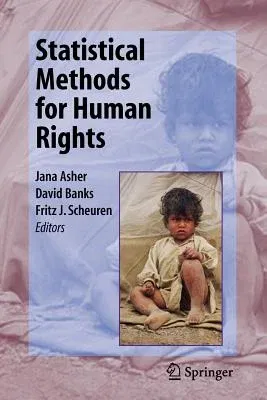Statistical Methods for Human Rights (2008)Paperback - 2008, 14 December 2007

Qty
1
Turbo
Ships in 2 - 3 days
In Stock
Free Delivery
Cash on Delivery
15 Days
Free Returns
Secure Checkout

Print Length
339 pages
Language
English
Publisher
Springer
Date Published
14 Dec 2007
ISBN-10
0387728368
ISBN-13
9780387728360
Description
Product Details
Book Edition:
2008
Book Format:
Paperback
Country of Origin:
US
Date Published:
14 December 2007
Dimensions:
23.29 x
16.26 x
1.68 cm
ISBN-10:
0387728368
ISBN-13:
9780387728360
Language:
English
Location:
New York, NY
Pages:
339
Publisher:
Weight:
512.56 gm